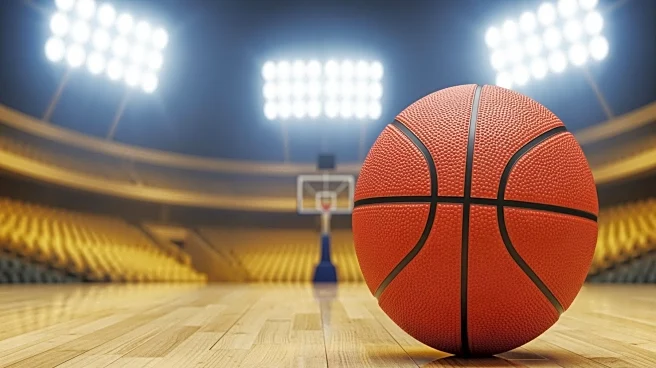What's Happening?
The Atlantic Coast Conference (ACC) has imposed a $25,000 fine on Syracuse University for allegedly faking injuries during their football game against Clemson. The incident occurred with 9:25 left in the game, where two Syracuse players were accused of feigning injuries to disrupt Clemson's offensive momentum. This action was deemed unethical and contrary to the spirit of the rules, specifically violating Rule 3-3-6-b. The National Coordinator of Football Officials confirmed the violation, stating it was a clear attempt to gain an unmerited advantage. Clemson quarterback Cade Klubnik publicly criticized Syracuse for the tactic, suggesting it hindered Clemson's ability to maintain offensive rhythm.
Why It's Important?
The fine highlights ongoing concerns about sportsmanship and fair play in college football. Such tactics can undermine the integrity of the game, affecting not only the immediate outcome but also the reputation of the teams involved. For Syracuse, the fine serves as a warning and a reminder of the importance of adhering to ethical standards. For the ACC, enforcing penalties for such actions reinforces its commitment to maintaining fair competition. The incident also impacts Clemson, as the alleged tactics may have contributed to their loss, affecting their season record and standing within the conference.
What's Next?
With the fine, the ACC considers the matter closed, but it may prompt further scrutiny of injury timeouts in future games. Teams might face increased pressure to ensure transparency and honesty in their gameplay. Coaches and players may need to adjust strategies to avoid similar penalties, while officials could implement stricter monitoring of injury claims during games. The incident could lead to discussions on rule amendments to prevent exploitation of injury timeouts.
Beyond the Headlines
The incident raises ethical questions about the lengths teams might go to secure a win. It also highlights the challenges officials face in distinguishing genuine injuries from strategic delays. This could lead to broader discussions on sports ethics and the need for enhanced regulations to preserve the integrity of college sports.









